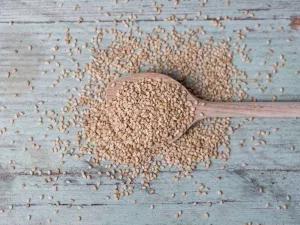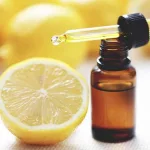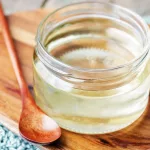Spearmint is a minty herb rich in antioxidants and other advantageous plant compounds. It may help regulate hormones, lower blood glucose and support digestion, and can also ease stress and boost memory.
Spearmint, or Mentha spicata, is a member of the mint family similar to peppermint.
It’s a perennial that originated in Europe and Asia but now grows across five continents. The plant gets its common name from its distinctive spear-shaped leaves.

Spearmint has a mildly sweet flavor and is commonly used to scent toothpaste, mouthwash, chewing gum and confections.
A popular way to enjoy this herb is as a brewed tea, using either fresh or dried leaves.
Beyond its pleasant flavor, this mint may offer several health benefits.
Below are 11 notable health advantages associated with spearmint tea and its essential oil.
1. Helpful for Digestive Issues
Spearmint is often used to ease symptoms of indigestion, nausea, vomiting and gas.
The compound (-)-carvone, naturally present in spearmint, has been shown to strongly suppress muscular contractions in the digestive tract, which may explain how it soothes digestive discomfort.
In an eight-week randomized trial involving 32 people with irritable bowel syndrome (IBS), one group received a supplement containing spearmint, lemon balm and coriander plus loperamide for diarrhea or psyllium for constipation.
By the study’s end, participants taking the spearmint-containing supplement reported less abdominal pain, discomfort and bloating than those given a placebo.
This herb may also ease nausea and vomiting associated with chemotherapy.
In one trial, topical application of spearmint essential oil significantly reduced rates of nausea and vomiting compared with a placebo.
Thus, although research on this type of mint and digestion is limited, some evidence indicates it can be beneficial.
Summary Spearmint has been shown to ease digestive symptoms such as nausea, vomiting, abdominal pain and bloating, though further research is warranted.
2. Rich in Antioxidants
Antioxidants are naturally occurring plant compounds that help prevent and repair damage from free radicals, unstable molecules that cause oxidative stress.
Oxidative stress has been connected to various chronic diseases, including heart disease, cancer and diabetes.
Spearmint contains numerous antioxidant constituents, including rosmarinic acid, flavones and flavanones such as limonene and menthol.
Two tablespoons (11 grams) of spearmint also deliver about 2% of the Reference Daily Intake (RDI) for vitamin C, another strong antioxidant (6, ).
Researchers report spearmint exhibits strong antioxidant activity against free radicals. In one study, extract from the herb prevented fat oxidation in meat and worked as effectively as the synthetic antioxidant BHT (8).
Summary Spearmint is abundant in antioxidant compounds that help shield and repair tissue from free radical damage.
3. May Help Women With Hormonal Imbalances
Spearmint tea may offer benefits for women facing hormonal imbalances.
Research in women indicates it can lower male hormones like testosterone while boosting female hormones important for ovulation, such as luteinizing hormone (LH), follicle-stimulating hormone (FSH) and estradiol.
In a five-day study of 21 women with hormonal irregularities, two cups of spearmint tea per day reduced testosterone and raised LH, FSH and estradiol levels.
Likewise, in a 30-day randomized trial, 42 women with polycystic ovary syndrome (PCOS) who drank spearmint tea twice daily had lower testosterone and higher LH and FSH than women who consumed a placebo tea.
Additionally, in a rat study, spearmint essential oil decreased testosterone and ovarian cysts while increasing the number of viable eggs in the ovaries.
Summary Spearmint tea may positively affect female hormones by lowering male hormones like testosterone and raising hormones involved in ovulation.
4. May Reduce Excess Facial Hair in Women
Consuming spearmint tea may help lessen hirsutism, the growth of dark, coarse hair on the face, chest and abdomen in women.
It’s traditionally used as an herbal remedy for unwanted hair growth in some Middle Eastern regions.
Elevated levels of male hormones, or androgens, are associated with increased facial hair in women.
Two studies involving women with excessive facial hair suggest drinking spearmint tea may be helpful.
In one five-day trial, 12 women with PCOS and nine women with idiopathic facial hair growth consumed two cups of spearmint tea twice daily during the follicular phase.
Although the study duration was too brief to assess changes in hair growth, participants did experience reductions in testosterone.
In a longer 30-day study of 41 women with PCOS, those who drank two cups daily reported decreased facial hair.
Even so, 30 days might not be sufficient to observe a clear change.
Summary Two cups of spearmint tea daily may help reduce facial hair growth in women by lowering testosterone, though longer studies are needed to confirm effects on hair.
5. May Enhance Memory
Some evidence suggests this herb may support memory.
Animal studies show mice given spearmint extract demonstrated better learning and memory, as evidenced by improved performance in maze tests.
Earlier human research indicated chewing mint-flavored gum might boost memory, though subsequent studies have failed to consistently replicate those findings (,, ).
In a more recent trial, older adults with memory impairment who took daily supplements containing 900 mg of spearmint extract experienced about a 15% gain in working memory.
Therefore, while evidence is limited, spearmint shows promise for cognitive benefits — particularly in older populations.
Summary Some studies indicate spearmint extract may improve memory in older adults, but additional research is required.
6. Fights Harmful Bacteria
Spearmint is a favored flavor in toothpaste, breath mints and chewing gum.
Beyond freshening breath, it exhibits antibacterial and antimicrobial actions that may help eliminate the oral bacteria responsible for bad breath.
Research has demonstrated that spearmint essential oil is effective against several harmful bacterial strains.
It has also shown activity against bacteria that cause foodborne illnesses, such as E. coli and Listeria.
Summary Spearmint displays antibacterial effects against multiple harmful bacteria, including foodborne pathogens like E. coli and Listeria.
7. May Lower Blood Sugar
Spearmint tea might help reduce blood glucose in people with diabetes.
Human trials on this effect are scarce, but animal studies are encouraging.
In one experiment, rats received a spearmint extract equivalent to 9 mg per pound (20 mg per kg) daily. Healthy rats were largely unaffected, while diabetic rats showed significantly lower blood sugar.
In another 21-day study with diabetic rats, those given 136 mg per pound (300 mg per kg) daily of the extract experienced a 25% fall in blood glucose.
Summary Although human data are lacking, animal studies suggest spearmint may markedly reduce blood sugar in diabetic rats.
8. May Help Reduce Stress
Spearmint tea may encourage relaxation and lower stress.
In some South American cultures, the tea is traditionally used to treat stress and insomnia.
In a rat study, spearmint extract reduced anxiety and improved sleep.
The plant’s leaves contain menthol, which has calming, sedative properties.
Spearmint is thought to promote relaxation by interacting with GABA receptors in the brain. GABA is a neurotransmitter involved in dampening neuronal activity.
Summary Spearmint tea is commonly used to alleviate stress. While research is limited, its compounds have been shown to promote relaxation and reduce stress.
9. May Ease Arthritis Pain
Spearmint may help relieve joint pain associated with arthritis.
A comprehensive review of animal and human studies concluded that essential oils derived from this mint have analgesic effects.
Similarly, in a 16-week trial involving 62 people with knee arthritis, drinking spearmint tea twice daily reduced stiffness and physical disability. A spearmint tea rich in rosmarinic acid relieved those symptoms and decreased pain.
Summary Spearmint has shown pain-relieving benefits for arthritis in both animal and human research. Tea from the herb may reduce stiffness and disability linked to arthritis.
10. May Help Lower Blood Pressure
Spearmint might contribute to lowering high blood pressure.
Although human trials are not available, some scientific evidence points to potential benefits.
The compound (-)-carvone in spearmint has been found to act in a manner similar to calcium-channel blockers, medicines used to treat high blood pressure.
In an animal study, (-)-carvone was about 100 times more potent at reducing blood vessel contractions than verapamil, a common antihypertensive drug.
Summary While evidence is limited, studies indicate spearmint may act similarly to standard blood pressure medications.
11. Simple to Add to Your Diet
Spearmint is easy to incorporate into meals and beverages.
You can buy spearmint in tea bags, as loose-leaf tea, or grow your own to brew fresh tea.
To prepare spearmint tea at home:
- Boil two cups (473 ml) of water.
- Remove from the heat and add a handful of torn spearmint leaves.
- Cover and steep for five minutes.
- Strain and enjoy.
This herbal infusion is delightful served hot or cold. It’s caffeine- and calorie-free, making it a naturally pleasant drink any time of day.
While consuming spearmint and its oil in amounts typically found in food or tea is likely safe, the safety of ingesting pure spearmint essential oil is unclear (27).
Undiluted spearmint oil can irritate the skin and mucous membranes.
Summary Spearmint tea can be enjoyed hot or iced. The safety of ingesting pure spearmint oil is uncertain, so oral use is not recommended.
The Bottom Line
Spearmint is a tasty, mint-flavored herb that may offer several health benefits.
It’s rich in antioxidants and beneficial plant compounds that may help balance hormones, reduce blood sugar and support digestion. It may also lessen stress and support memory.
Overall, spearmint is a worthwhile addition to the diet — especially as spearmint tea, which can be served hot or cold.

























Leave a Reply
You must be logged in to post a comment.